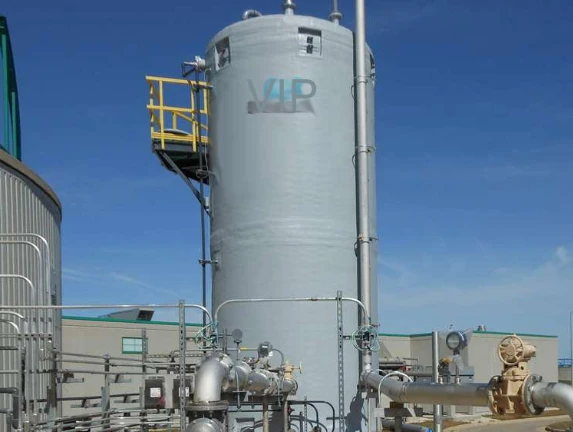
-
 Afrikaans
Afrikaans -
 Albanian
Albanian -
 Amharic
Amharic -
 Arabic
Arabic -
 Armenian
Armenian -
 Azerbaijani
Azerbaijani -
 Basque
Basque -
 Belarusian
Belarusian -
 Bengali
Bengali -
 Bosnian
Bosnian -
 Bulgarian
Bulgarian -
 Catalan
Catalan -
 Cebuano
Cebuano -
 China
China -
 China (Taiwan)
China (Taiwan) -
 Corsican
Corsican -
 Croatian
Croatian -
 Czech
Czech -
 Danish
Danish -
 Dutch
Dutch -
 English
English -
 Esperanto
Esperanto -
 Estonian
Estonian -
 Finnish
Finnish -
 French
French -
 Frisian
Frisian -
 Galician
Galician -
 Georgian
Georgian -
 German
German -
 Greek
Greek -
 Gujarati
Gujarati -
 Haitian Creole
Haitian Creole -
 hausa
hausa -
 hawaiian
hawaiian -
 Hebrew
Hebrew -
 Hindi
Hindi -
 Miao
Miao -
 Hungarian
Hungarian -
 Icelandic
Icelandic -
 igbo
igbo -
 Indonesian
Indonesian -
 irish
irish -
 Italian
Italian -
 Japanese
Japanese -
 Javanese
Javanese -
 Kannada
Kannada -
 kazakh
kazakh -
 Khmer
Khmer -
 Rwandese
Rwandese -
 Korean
Korean -
 Kurdish
Kurdish -
 Kyrgyz
Kyrgyz -
 Lao
Lao -
 Latin
Latin -
 Latvian
Latvian -
 Lithuanian
Lithuanian -
 Luxembourgish
Luxembourgish -
 Macedonian
Macedonian -
 Malgashi
Malgashi -
 Malay
Malay -
 Malayalam
Malayalam -
 Maltese
Maltese -
 Maori
Maori -
 Marathi
Marathi -
 Mongolian
Mongolian -
 Myanmar
Myanmar -
 Nepali
Nepali -
 Norwegian
Norwegian -
 Norwegian
Norwegian -
 Occitan
Occitan -
 Pashto
Pashto -
 Persian
Persian -
 Polish
Polish -
 Portuguese
Portuguese -
 Punjabi
Punjabi -
 Romanian
Romanian -
 Russian
Russian -
 Samoan
Samoan -
 Scottish Gaelic
Scottish Gaelic -
 Serbian
Serbian -
 Sesotho
Sesotho -
 Shona
Shona -
 Sindhi
Sindhi -
 Sinhala
Sinhala -
 Slovak
Slovak -
 Slovenian
Slovenian -
 Somali
Somali -
 Spanish
Spanish -
 Sundanese
Sundanese -
 Swahili
Swahili -
 Swedish
Swedish -
 Tagalog
Tagalog -
 Tajik
Tajik -
 Tamil
Tamil -
 Tatar
Tatar -
 Telugu
Telugu -
 Thai
Thai -
 Turkish
Turkish -
 Turkmen
Turkmen -
 Ukrainian
Ukrainian -
 Urdu
Urdu -
 Uighur
Uighur -
 Uzbek
Uzbek -
 Vietnamese
Vietnamese -
 Welsh
Welsh -
 Bantu
Bantu -
 Yiddish
Yiddish -
 Yoruba
Yoruba -
 Zulu
Zulu
Innovative Applications of Fiberglass in Chemical Manufacturing and Industry Solutions
The Versatile World of Fiberglass Chemical Products
Fiberglass, a composite material made from fine glass fibers, is renowned for its strength, durability, and resistance to various environmental factors. The chemical products used in the production and enhancement of fiberglass have transformed various industries, revolutionizing manufacturing processes and expanding the applications of this versatile material. From automotive to construction, the significance of fiberglass chemical products cannot be understated.
At the heart of fiberglass production are two primary components glass fibers and a resin matrix, typically made from thermosetting resins like epoxy or polyester. These resins act as a binder that holds the glass fibers together, providing structural integrity to the end product. The choice of resin significantly influences the properties of the fiberglass, including its strength, flexibility, and resistance to chemicals and moisture. Manufacturers often incorporate specific additives, such as flame retardants, UV stabilizers, and anti-corrosive agents, to enhance the performance of fiberglass products.
Fiberglass chemical products are widely used in numerous applications. In the automotive industry, for example, fiberglass is employed to manufacture lightweight yet robust components that improve vehicle fuel efficiency without compromising safety. The use of fiberglass in body panels and structural components can reduce weight, enhance performance, and lower manufacturing costs. Additionally, fiberglass's resistance to corrosion makes it ideal for manufacturing parts exposed to various environmental elements.
In construction, fiberglass chemical products are crucial for the production of high-performance insulation materials and roofing systems. Fiberglass insulation is highly effective in reducing energy consumption in buildings, contributing to energy efficiency and sustainability. Moreover, fiberglass-reinforced plastics (FRP) are increasingly utilized for structural applications, such as bridges and walkways, due to their superior strength-to-weight ratio and resistance to environmental degradation.
fiberglass chemical product

The marine industry also benefits immensely from fiberglass chemical products. Fiberglass boats and yachts have become the standard due to their lightweight, strength, and durability. The ability to mold fiberglass into complex shapes allows for innovative designs that were previously unattainable with traditional materials. Furthermore, the resistance of fiberglass to saltwater and UV radiation ensures that these vessels maintain their aesthetic appeal and structural integrity over time.
In the realm of aerospace, fiberglass's lightweight properties are invaluable. Aircraft manufacturers incorporate fiberglass in various components, including fairings and interiors, to achieve significant weight savings that translate to improved fuel efficiency. The durability of fiberglass also plays a crucial role in ensuring the safety and reliability of aircraft, making it a preferred material in this high-stakes industry.
The versatility of fiberglass chemical products extends to consumer goods as well. From sports equipment to household items, fiberglass provides a blend of strength and aesthetic appeal. Products such as surfboards, bicycles, and storage containers benefit from the lightweight and durable characteristics that fiberglass offers.
As industries continue to evolve, the demand for advanced fiberglass chemical products is expected to grow. Research and development efforts are focused on improving the properties of fiberglass resins and exploring eco-friendly alternatives, ensuring a sustainable future for this invaluable material. Innovations, such as biosourced resins and recycling initiatives, are paving the way for a greener approach to fiberglass production.
In conclusion, fiberglass chemical products play a pivotal role in various sectors, from automotive and construction to marine and aerospace. The unique properties of fiberglass, enhanced by advanced chemical formulations, make it an essential material in modern manufacturing. As technology advances and sustainability becomes a priority, the glass fiber industry will undoubtedly continue to thrive, driving innovations that shape the future of materials science.









